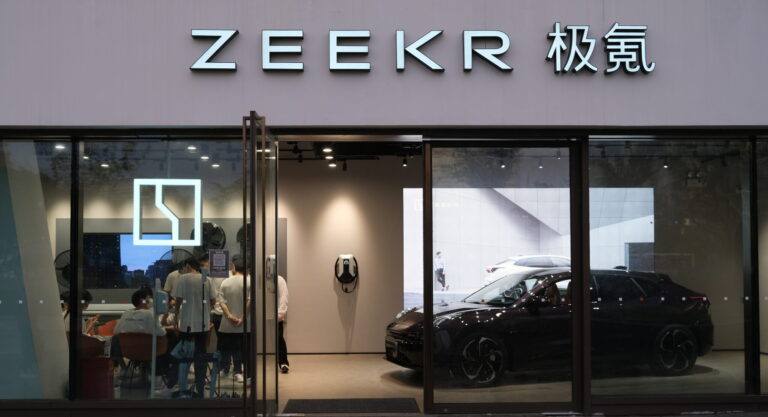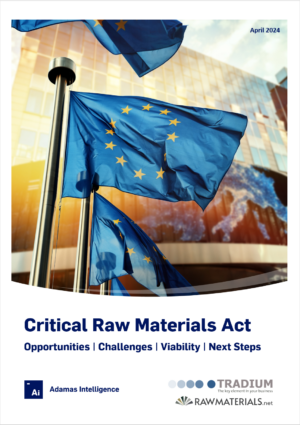Chinese EV firms undeterred by Europe’s attempts to limit competition

France’s new subsidy regime was announced only a few days after the EU launched an investigation into what it calls unfair competition from Chinese electric carmakers. The new rules from Paris, which come into effect in December, may serve as a template for the EU response to Chinese exports to the continent.
France has redefined the criteria for the country’s electric vehicle incentives under new rules that will stop subsidies for electric vehicles that have a poor carbon footprint starting in December. It will effectively eliminate eligibility for all vehicles exported from China or made elsewhere with made-in-China batteries.
However, the threat of tariffs and other measures to limit Chinese access to the European market are doing little to slow the country’s EV makers’ efforts to conquer the continent.
Chinese automaker Chery Automobile will launch a range of SUV models over the next two years in Europe from its brands Omoda, Jaecoo and the all-electric Exlantix, and could decide on an assembly plant in Europe by as soon as 2024, the European chief of the company told Reuters this week.
Seeking out European markets
Chery follows cars from Zeekr (one of the brands under the sprawling Geely automaking empire, which also owns a stake in Mercedes-Benz), which last month went on sale in Europe. Zeekr plans to add another seven models to the lineup by 2025. The Zeekr all-electric brand, targeting the luxury end of the market, is barely two years old having been first revealed at the 2021 Shanghai auto show.
In China, Zeekr has upped sales by more than 120% so far this year-to-date with more than 50,000 units of the Zeekr 01 (shooting brake-styled launch model), the massive boxy 09 minivan and X crossover leaving showrooms in the first seven months of the year. Geely already has an impressive European presence through its Volvo, Polestar and Lynk & Co brands. Geely bought Volvo from Ford in 2020 and also owns the storied Lotus sportscar marque. 
Adamas Intelligence data indicate that in the first half of 2023, 19% of all GWhs delivered to EV (including hybrid) buyers in Europe (plus Britain and non-EU states) were contained in China-made EVs and packs.
However, the bulk of European EV unit imports from China this year-to-date were non-Chinese brands, and thus any EU measures to restrict those imports would inevitably impact the likes of BMW, Dacia and Tesla, which have China-made EVs making their way to the continent. In absolute terms, the battery power exported to Europe from China grew more than 51% during the first half of this year – a total of 14 GWhs.
Rapid entry for Vinfast
It’s not just Chinese automakers making a go of the European EV market. Vietnams’ Vinfast said after receiving regulatory approval it will make first deliveries to France, Germany and the Netherlands in the fourth quarter of this year. Vinfast has a better chance than its Chinese counterparts of not falling foul of any new EU regulations – the bulk of Vietnam’s electricity supply is renewable sources, mainly hydro and solar.
Vinfast was formed out of the vast Vingroup conglomerate headed by the country’s richest man, Pham Nhat Vuong, in 2017 and stopped making internal combustion engine cars in 2021. The company listed on the US Nasdaq market in August where it was briefly worth some $180 billion.
The Adamas tracker data shows Vietnam is currently the fastest growing EV market on the planet, deploying an eye-watering 5,800% more MWh onto roads in July 2023 than the same month last year. It’s from a very low base, but the Asian nation now deploys significantly more battery power per month than some of its regional counterparts, including Malaysia, Taiwan and Indonesia. Vinfast to-date has sown up 99% of its domestic market.
EV, Battery and Battery Materials Market Intelligence:
EV Battery Capacity and Battery Metals Tracker
Building on ongoing EV registrations in over 110 countries, our web-based platform helps users track monthly deployment of battery metals and materials, battery capacity, and the ever-evolving competitive landscapes of battery chemistries and cell suppliers.
EV Battery Capacity Monthly
The ‘EV Battery Capacity Monthly’ is a subscription-based report for tracking monthly deployment of passenger EV battery capacity by EV type, region, country, make, model, cell supplier and cell chemistry on an ongoing basis.





